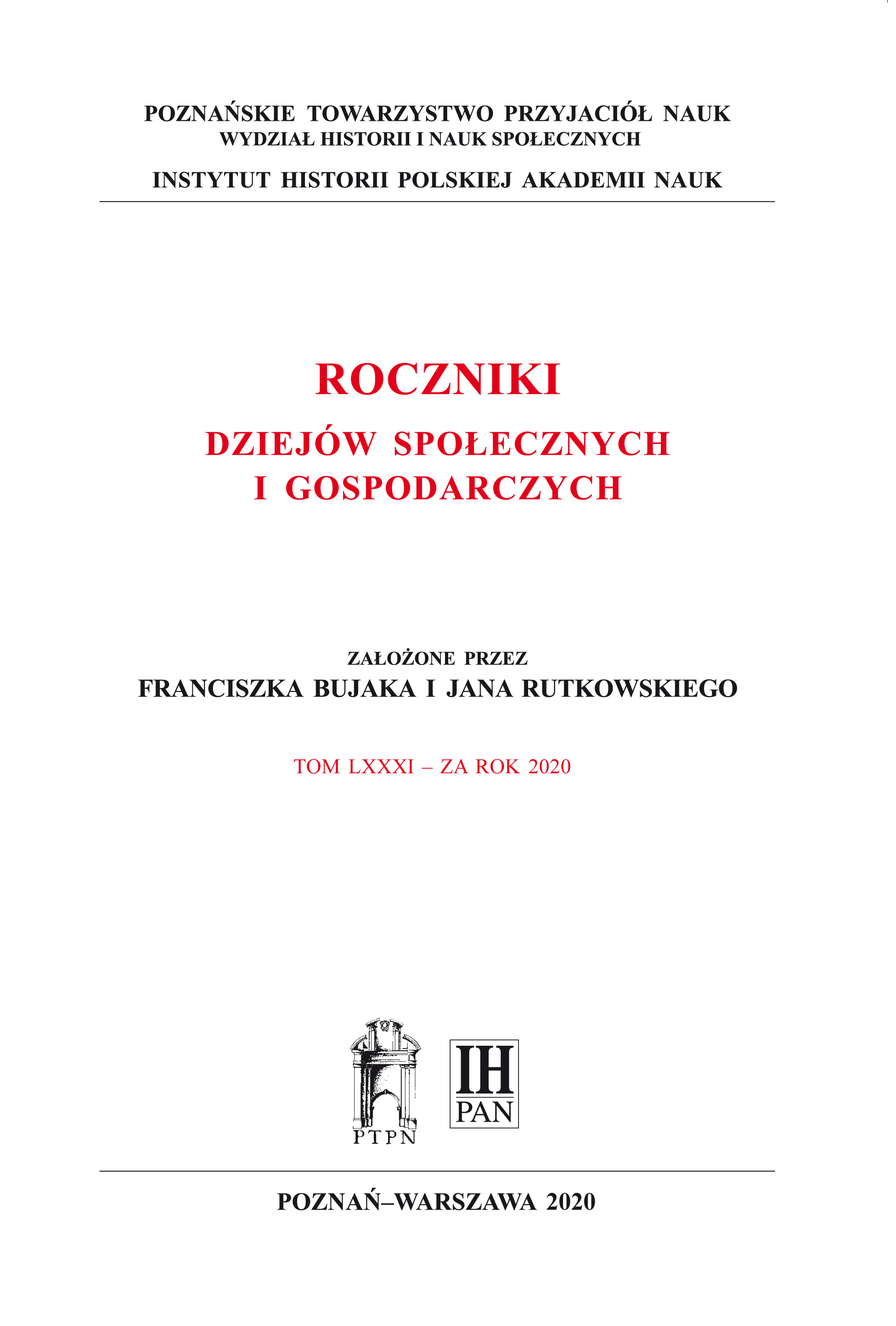Wdowy-dysponentki gospodarstw chłopskich w późnośredniowiecznej Polsce w świetle ksiąg sądów szlacheckich i kościelnych (na przykładzie ziemi lubelskiej)
Widows-managers of peasant farms in late medieval Poland in the context of record books from noble and ecclesiastical courts – on the example of Lublin Land
Author(s): Grzegorz Jawor, Małgorzata Kołacz-ChmielSubject(s): History, Middle Ages, 13th to 14th Centuries, 15th Century
Published by: Instytut Historii im. Tadeusza Manteuffla Polskiej Akademii Nauk
Keywords: peasant community; widows; peasant family; inheritance; property management; coniuncta manu ownership
Summary/Abstract: The aim of the present article is to answer the general question of the circumstances in which women, in the reality of typically patriarchal peasant communities existing in late medieval Poland, were taking over the management of the farms left behind by their late husbands. The authors of the paper focus on a number of issues connected to this subject mat- ter, in particular: the frequency with which such instances occurred, forms of managing the property by a widow, coniuncta manu ownership including women, and the duration of female management of properties. As neither judicial record books of the countryside areas from the Lublin region nor detailed inventories or their descriptions have been preserved, the abovementioned issues will be analysed on the basis of the only available sources, i.e. record books from noble or ecclesiastical courts. So far they have not been appreciated in the research of peasant communities, but it seems that a detailed analysis of the records included in the books may unveil new opportunities for study- ing social aspects of the operation of peasant communities.
Journal: Roczniki Dziejów Społecznych i Gospodarczych
- Issue Year: 2020
- Issue No: 81
- Page Range: 123-151
- Page Count: 29
- Language: Polish

